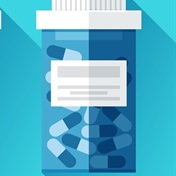President Jacob Zuma's call on the SABS to speed up the standardisation of traditional medicines has met with resistance from the South African Medical Association (Sama).
Sama said on this was the task of the Medicines Control Council (MCC) – not the SA Bureau of Standards (SABS).
Zuma said earlier in the day he would like to see the SABS engaged in an effort to speed up the standardisation of African traditional medicines.
Sama spokesman Dr Norman Mabasa said there was already a regulator of medicines, the MCC.
One regulator
"I do not agree with that suggestion. There must be one regulator of medical substances in the country," Mabasa said.
"Multiple regulations create a number of problems and the standards system becomes compromised in the process."
He said medical substance needed the utmost caution in handling. The standardisation process should be consistent, which was done better in a single testing facility.
"Let us not forget what effect medicines have on the body, especially on humans. This means we have to be very careful even in the standards we use to determine what can be used by people," Mabasa said.
National standards
Zuma said the government was committed to bringing traditional medicine into the mainstream of health care in an appropriate manner. He said the country needed to establish national standards in traditional medicine.
"Studies have shown that 70% of our total population depends on traditional medicine for primary health," Zuma said at the opening of a new R165 million SABS laboratory complex in Groenkloof, Pretoria.
SABS chief executive Bonakele Mehlomakulu agreed that a lack of standardisation in the traditional medicine sector should be rectified.
"We are enthusiastic about this sector. There is need for standards from harvesting, storage, production to processing of the products and medicine," she said.
Co-operation in traditional medicines
"Right now we are having consultations with other stakeholders in countries like Brazil, India and China to forge co-operation in the traditional medicines sector."
The Pharmaceutical Society of South Africa (PSSA) said there was a need to prove whether the herbs used in traditional medicine had healing abilities.
He believed the SABS and MCC should work together to establish the healing potential of traditional medicines.
They should not work independently of each other in relation to traditional medicines.
Sama claims to represent about 70% of the country's doctors.
Attempts to obtain comment from the MCC, which according to its website does have an African Traditional Medicines Committee, were unsuccessful.
Health department spokesman Fidel Hadebe could also not immediately be reached for comment.
(Sapa,October 2011)
Read more:




 Publications
Publications
 Partners
Partners










